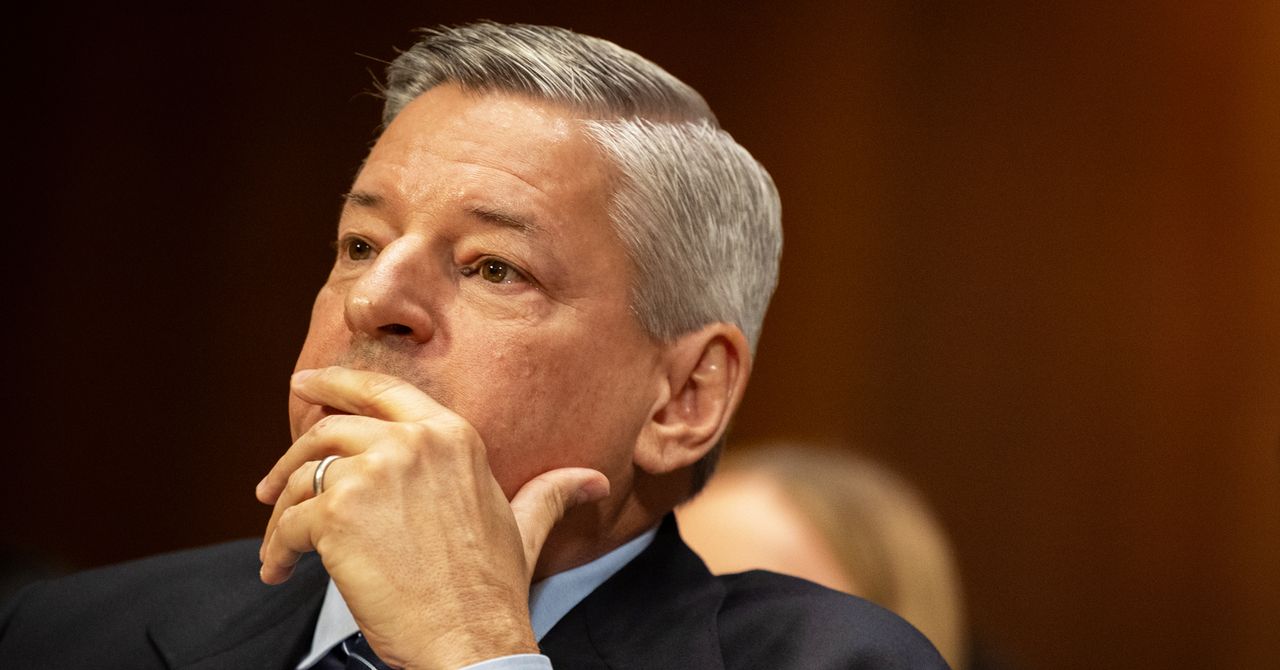Tech
ShinyHunters linked to breach of French luxury goods house | Computer Weekly

Kering, the France-based parent of luxury brands such as Alexander McQueen, Balenciaga and Gucci, has admitted the personal data of customers has been compromised following an apparent ransomware attack that is being linked to the ShinyHunters hacking collective through a wide-ranging compromise of various Salesforce instances.
The purloined data is thought to comprise personal information including names and contact details, and information on customer spending history. The firm said that no financial or credit card data was affected.
A spokesperson for the organisation told the BBC that the compromise was uncovered in June. They said: “An unauthorised third party gained temporary access to our systems and accessed limited customer data from some of our Houses. No financial information … or government-issued identification numbers, was involved in the incident.”
The BBC additionally reported that Kering says it has refused to pay a ransom. However, via Telegram chat with an alleged ShinyHunters representative claiming the attack, the broadcaster also learned that negotiations have apparently taken place. ShinyHunters apparently breached Kering’s defences in April.
Kevin Marriott, senior manager of cyber and head of security operations at Immersive, said the apparent delay likely indicated some form of negotiation to suppress the leak had indeed occurred – or possibly that the data has now been sold and is being exploited.
Nevertheless, he said, the latest attacks continue a trend of incidents affecting luxury brands, with Kering rival LVMH also being targeted.
“What makes this particular breach so concerning is that not only were emails, phone numbers and addresses taken, but the data related to customer spend may be used to prioritise the customers impacted as targets in further attacks, through targeted social engineering attacks or identity fraud,” said Marriott.
“The latest breach affecting Gucci, Balenciaga and Alexander McQueen underlines the risks luxury brands face as prominent targets for cyber crime,” added Joseph Rooke, director of risk insight at Recorded Future’s Insikt Group.
“Attackers are drawn to these companies not only because of the global recognition of their brands, but also because their customer bases include high-net-worth individuals whose personal details can be especially valuable.”
Controlling the story
ShinyHunters’ use of high-profile national broadcasters to spread its message as widely as possible has been a hallmark of the extensive cyber attack campaign the gang – and associated ‘acts’ like Scattered Spider – have conducted during 2025.
Speaking to MPs in July, Marks & Spencer chairman Archie Norman described the “unusual experience” of learning about new developments in the Scattered Spider attack on the retailer from the BBC, where reporters have been in contact with several of the hackers.
Lee Sult, chief investigator at Binalyze, said that in too many cases, victims were losing control of the narrative and allowing their attackers to cause more harm by showboating in public.
“If attackers control the narrative, they can further damage their targets’ reputation and potentially spread misinformation,” said Sult.
“Getting ahead of this and owning the story means organisations can rebut false claims with confidence. But for this to happen, investigation cannot be something that happens after the dust settles.
“Instead it should be completed in hours instead of days, bringing light into the obscure areas so attackers have less space to make up stories,” he said.
Tech
Netflix Says if the HBO Merger Makes It Too Expensive, You Can Always Cancel

There is concern that subscribers might be negatively affected if Netflix acquires Warner Bros. Discovery’s streaming and movie studios businesses. One of the biggest fears is that the merger would lead to higher prices due to less competition for Netflix.
During a US Senate hearing Tuesday, Netflix co-CEO Ted Sarandos suggested that the merger would have an opposite effect.
Sarandos was speaking at a hearing held by the US Senate Judiciary Committee’s Subcommittee on Antitrust, Competition Policy, and Consumer Rights, “Examining the Competitive Impact of the Proposed Netflix-Warner Brothers Transaction.”
Sarandos aimed to convince the subcommittee that Netflix wouldn’t become a monopoly in streaming or in movie and TV production if regulators allowed its acquisition to close. Netflix is the largest subscription video-on-demand provider by subscribers (301.63 million as of January 2025), and Warner Bros. Discovery is the third (128 million streaming subscribers, including users of HBO Max and, to a smaller degree, Discovery+).
Speaking at the hearing, Sarandos said: “Netflix and Warner Bros. both have streaming services, but they are very complementary. In fact, 80 percent of HBO Max subscribers also subscribe to Netflix. We will give consumers more content for less.”
During the hearing, Democratic senator Amy Klobuchar of Minnesota asked Sarandos how Netflix can ensure that streaming remains “affordable” after a merger, especially after Netflix issued a price hike in January 2025 despite adding more subscribers.
Sarandos said the streaming industry is still competitive. The executive claimed that previous Netflix price hikes have come with “a lot more value” for subscribers.
“We are a one-click cancel, so if the consumer says, ‘That’s too much for what I’m getting,’ they can cancel with one click,” Sarandos said.
When pressed further on pricing, the executive argued that the merger doesn’t pose “any concentration risk” and that Netflix is working with the US Department of Justice on potential guardrails against more price hikes.
Sarandos claimed that the merger would “create more value for consumers.” However, his idea of value isn’t just about how much subscribers pay to stream but about content quality. By his calculations, which he provided without further details, Netflix subscribers spend an average of 35 cents per hour of content watched, compared to 90 cents for Paramount+.
The Netflix stat is similar to one provided by MoffettNathanson in January 2025, finding that in the prior quarter, on average, Netflix generated 34 cents in subscription fees per hour of content viewed per subscriber. At the time, the research firm said Paramount+ made an average of 76 cents per hour of content viewed per subscriber.
Downplaying Monopoly Concerns
Netflix views Warner as “both a competitor and a supplier,” Sarandos said when subcommittee chair Republican senator Mike Lee of Utah asked why Netflix wants to buy WB’s film studios, per Variety. The streaming executive claimed that Netflix’s “history is about adding more and more” content and choice.
During the hearing, Sarandos argued that streaming is a competitive business and pointed to Google, Apple, and Amazon as “deep-pocketed tech companies trying to run away with the TV business.” He tried to downplay concerns that Netflix could become a monopoly by emphasizing YouTube’s high TV viewership. Nielsen’s The Gauge tracker shows which platforms Americans use most when using their TVs (as opposed to laptops, tablets, or other devices). In December, it said that YouTube, not including YouTube TV, had more TV viewership (12.7 percent) than any other streaming video-on-demand service, including second-place Netflix (9 percent). Sarandos claimed that Netflix would have 21 percent of the streaming market if it merged with HBO Max.
Tech
The Best Super Bowl TV Deals

Upgrade your viewing setup before inviting your friends over to watch the big game.
Source link
Tech
Measles Is Causing Brain Swelling in Children in South Carolina

Some children affected by measles in the ongoing South Carolina outbreak have developed a serious complication of the disease called encephalitis, or swelling of the brain, state epidemiologist Linda Bell said on Wednesday.
The South Carolina measles outbreak began in October with a handful of infections. As of February 3, cases have climbed to 876, with 700 of those being reported since the beginning of the year. The surge could mean another bad year of measles for the United States, which had more than 2,267 cases—the highest in 30 years—in 2025. Declining vaccination rates across the country are driving the resurgence.
Encephalitis is a rare but severe complication of measles that can lead to convulsions and cause deafness or intellectual disability in children. It usually occurs within 30 days of an initial measles infection and can happen if the brain becomes infected with the virus or if an immune reaction to the virus causes inflammation in the brain. Among children who get measles encephalitis, 10 to 15 percent die.
It’s not known how many children in South Carolina have developed this serious complication. Under state law, measles cases must be reported to the South Carolina Department of Public Health, but measles hospitalizations and complications do not need to be disclosed.
“We don’t comment on the outcomes of individuals, but we do know that inflammation of the brain, or encephalitis, is a known complication of measles,” Bell told reporters during a media briefing on Wednesday. “Anytime you have inflammation of the brain, there can be long-term consequences, things like developmental delay and impacts on the neurologic system that can be irreversible.”
The department is aware of 19 measles-related hospitalizations in the state, including some due to pneumonia, which occurs in about one in 20 children with measles and is the leading cause of death for children who get measles.
Bell also said that several pregnant women who were exposed to the virus required administration of immune globulin, a concentrated solution of antibodies. It provides temporary protection against measles for unvaccinated individuals. Measles exposure during pregnancy can cause preterm birth or miscarriage.
A rarer type of brain swelling called subacute sclerosing panencephalitis, or SSPE, can occur years after a measles infection. In September, the Los Angeles County Department of Public Health reported the death of a school-age child due to SSPE. The child was originally infected with measles as an infant before they were old enough to receive the measles vaccine, the first dose of which is recommended for children between 12 and 15 months old.
After recovering from the initial measles illness, the child developed SSPE, in which the virus remains dormant in the brain before triggering an inflammatory response that destroys brain tissue over time. The condition usually appears seven to 10 years after a person appears to recover from the initial measles infection. An estimated two in 10,000 people who get measles eventually develop SSPE.
The measles, mumps, and rubella (MMR) vaccine is the best way to prevent measles and serious complications associated with it.
Over 7,000 more doses of the MMR vaccine were given statewide in South Carolina this January compared to January 2025, a 72 percent increase. In Spartanburg County, the center of the outbreak, over 1,000 more doses were given this January compared to January 2025, a 162 percent increase. So far, January was the best month for measles vaccination during the outbreak, Bell said.
-

 Sports1 week ago
Sports1 week agoPSL 11: Local players’ category renewals unveiled ahead of auction
-

 Entertainment1 week ago
Entertainment1 week agoClaire Danes reveals how she reacted to pregnancy at 44
-

 Sports1 week ago
Sports1 week agoCollege football’s top 100 games of the 2025 season
-

 Business1 week ago
Business1 week agoBanking services disrupted as bank employees go on nationwide strike demanding five-day work week
-

 Politics1 week ago
Politics1 week agoTrump vows to ‘de-escalate’ after Minneapolis shootings
-

 Sports1 week ago
Sports1 week agoTammy Abraham joins Aston Villa 1 day after Besiktas transfer
-

 Entertainment1 week ago
Entertainment1 week agoK-Pop star Rosé to appear in special podcast before Grammy’s
-

 Tech1 week ago
Tech1 week agoBrighten Your Darkest Time (of Year) With This Smart Home Upgrade






